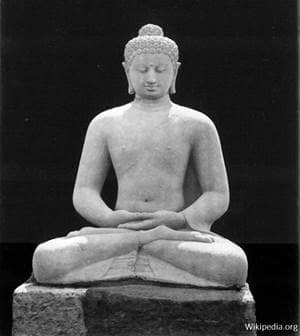
Understanding the Three Main Beliefs of Buddhism: An In-depth Guide
The three most basic beliefs of Buddhism concern its founder, its way of life, and its community. Buddhists refer to these as the Three Jewels, or the Triratna. To be a Buddhist is to “take refuge” in the Buddha (the founder), to embrace the dharma (the way of life), and to associate with the sangha (the community). Beyond these Three Jewels, the relative importance of other teachings may vary from school to school. Nevertheless, there is a vast common ground in concepts and approaches to the Buddhist life. Most Buddhists would emphasize the Four Noble Truths and the Noble Eightfold Path above all else.
The Three Universal Truths: Impermanence, Suffering, and No Self
Impermanence is the Buddhist idea that nothing is eternal. Everything in life is always changing. If something has changed from one thing to another, by definition, the thing it was previously has disappeared. It is impermanent.
The universal truth of Suffering is based on the idea of this impermanence. Nothing is permanent, so no desire is ever truly satisfied. A person can eat as much food as they wish, but that will not keep them from being hungry later. Besides, even if a person is perfectly happy at a specific moment, the world is far from perfect. No one is perfectly happy forever. Everyone is destined to suffer from unmet desires at some point.
The third universal truth is that of No Self. The Buddhist idea of No Self deals with the idea that there is no permanent and unchanging aspect of a person that can be identified as the Self. Instead, a person’s consciousness and body are always shifting and changing. There is nothing about a person that is impermanent.
The Four Noble Truths: Understanding Suffering in Buddhism
The Four Noble Truths are noble not in the sense of honorable or virtuous, but in the sense of “deeply true” or known and understood by the wise. Each truth addresses the reality of suffering in human life. The first Noble Truth is dukkha, usually translated as “suffering.” According to Buddhism, there are many kinds of suffering. Some are obvious, and some are subtle. There is, however, no escaping suffering while one is living. As such, the first Noble Truth is sometimes described as “life is suffering.” Pain is inescapable as humans make their way through childhood, adulthood, old age, and death.
The second Noble Truth addresses the origin of suffering or samudaya. Samudaya, the root of all suffering, is tanha, which refers to misplaced, unhealthy, or excessive desire. When desire runs amok, it usually takes one of three forms: greed, ignorance or delusion, and hatred or destructive urges. These are called the three roots of evil, three fires, or three poisons. Unmet desires create pain.
The third Noble Truth explores the cessation of suffering, or niroda. Buddhism teaches that a person can become free of suffering by eliminating dangerous desires. This is done by liberating oneself from all forms of attachment. Those who do so successfully may achieve nirvana so that when they die, they will not be reborn into a new life where the suffering will continue.
The Path to Cessation: The Noble Eightfold Path
The fourth Noble Truth deals with the path to the cessation of suffering and is, essentially, the teaching of the practices and ideas that a Buddhist follows. Understandably, the path to cessation of suffering varies between Buddhist schools. The largest and best known is the tradition known as the Middle Way, which follows the Noble Eightfold Path.
The Noble Eightfold Path is a list of eight steps that are said to lead to enlightenment. The eight steps on the path are right understanding, right intention, right speech, right action, right livelihood, right effort, right mindfulness, and right concentration. The eight steps can be grouped into three categories: wisdom, ethical conduct, and meditation. Though they are often read in a specific order, the eight steps on the Eightfold Path are not meant to be undertaken in any specific order. Instead, each step should reinforce and encourage one another.
Read more about Buddhism's Five Rules for Life
Read more about Buddhism from Patheos' Library of World Religions
10/3/2023 4:49:43 PM










